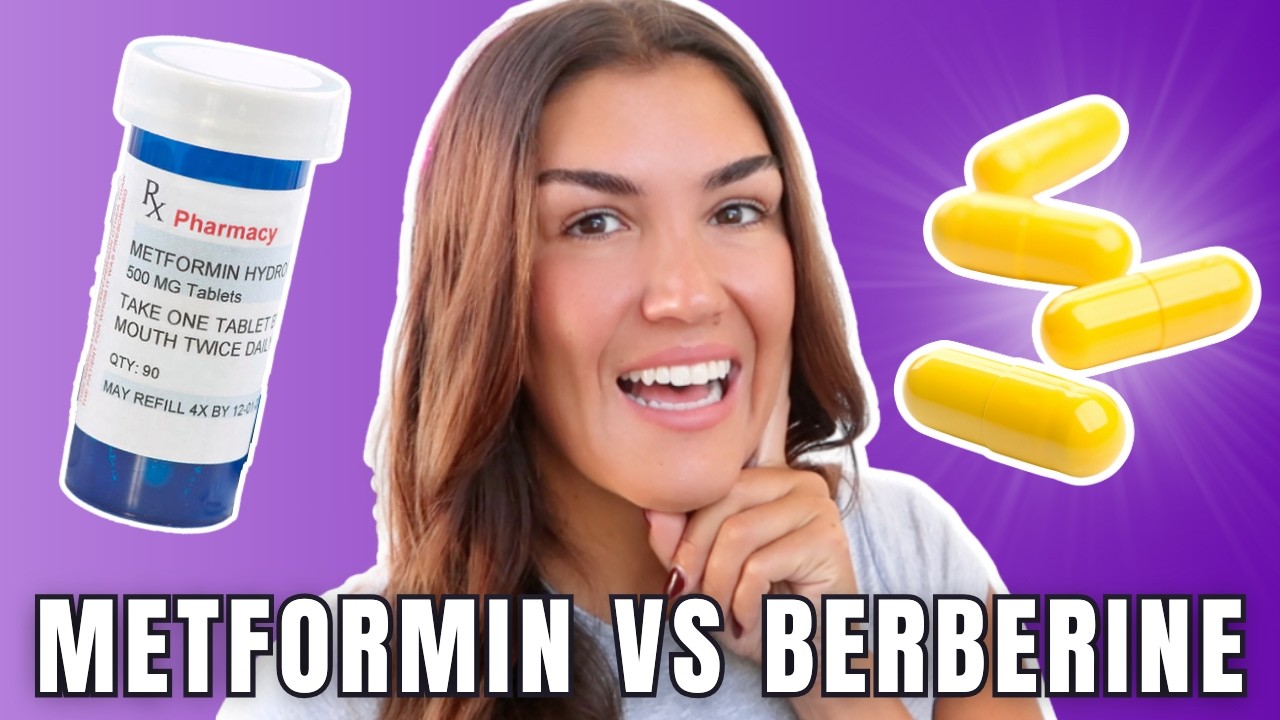- Explore the mechanisms and effectiveness of Metformin and Berberine in treating insulin resistance.
- Examine scientific studies comparing these two compounds’ impact on metabolic markers.
- Analyze potential side effects and contraindications associated with Metformin and Berberine.
- Discuss the lifestyle and dietary considerations in managing insulin resistance with these treatments.
- Review expert opinions and future directions for research on Metformin and Berberine.
Insulin resistance is a growing concern, often leading to conditions like type 2 diabetes and contributing to a spectrum of metabolic disorders. Understanding the options for managing this condition is crucial for both patients and healthcare providers. Metformin, a pharmaceutical staple, has long been a go-to for insulin resistance. On the other hand, Berberine, a natural compound, has gained popularity as a potentially effective alternative. This article delves into a detailed comparison of Metformin and Berberine, providing insights into their mechanisms, efficacy, safety, and supporting scientific research.
Firstly, Metformin is well-regarded in the medical community for its ability to reduce blood glucose levels by enhancing insulin sensitivity, primarily in the liver. Its mechanism involves the inhibition of gluconeogenesis, leading to less glucose being dumped into the bloodstream, and improving muscle tissue’s response to insulin. The extensive clinical data backing Metformin provides a robust foundation for its indication in managing insulin resistance and type 2 diabetes.
In contrast, Berberine, a bioactive compound found in several plants like Berberis, offers similar glucose-lowering effects. It activates an enzyme called AMPK (adenosine monophosphate-activated protein kinase), which plays a significant role in regulating metabolism. By promoting the uptake of glucose in tissues and enhancing insulin sensitivity, Berberine’s mechanism mirrors Metformin in several ways. Some studies suggest Berberine might also reduce inflammation and improve lipid metabolism, adding layers of benefit beyond glucose control.
As we examine the effectiveness of both, numerous studies highlight their impacts on metabolic markers. In randomized controlled trials, Metformin consistently reduces hemoglobin A1c levels by 1-2%, making it an effective choice for many with insulin resistance. Berberine, while newer to the market, has shown promise in small-scale studies, demonstrating comparable reductions in blood sugar levels. However, its full clinical efficacy, especially in diverse populations, is still under review.
Potential side effects and contraindications present another crucial aspect of the discussion. Metformin is generally well-tolerated but known for some gastrointestinal side effects such as nausea and diarrhea. Long-term usage may carry the risk of vitamin B12 deficiency, necessitating monitoring. Patients with renal impairment should exercise caution. Berberine also comes with its set of challenges, including potential gastrointestinal discomfort. Unlike Metformin, Berberine is not strictly regulated, leading to variability in product quality. Checking with a healthcare provider before starting Berberine, especially alongside other medications, is recommended.
Lifestyle and dietary considerations are paramount when addressing insulin resistance, regardless of the chosen treatment method. Both Metformin and Berberine should be paired with lifestyle adjustments to maximize effectiveness. Regular physical activity and a balanced diet rich in whole foods like vegetables, whole grains, and lean proteins are essential. Reducing refined sugars and processed foods further aids in managing insulin sensitivity.
Expert opinions in the medical and nutritional fields highlight the potential collaboration between pharmaceutical and nutraceutical interventions. While Metformin remains a primary treatment due to its well-documented history and efficacy, Berberine offers an intriguing adjunct or alternative for those seeking a more natural option. Researchers emphasize the need for larger, more diversified studies to fully understand Berberine’s role and standardize its use.
The future of managing insulin resistance may lie in personalized medicine, considering individual patient profiles to choose between or combine Metformin and Berberine effectively. As research continues, these compounds could reveal additional benefits or novel mechanisms, particularly as we learn more about the intricacies of glucose metabolism and the factors influencing insulin sensitivity.
In summary, both Metformin and Berberine have valid positions in the management of insulin resistance. The choice between them—or their combination—depends on individual health circumstances, preferences, and professional medical advice. This detailed exploration of Metformin vs. Berberine aims to provide clarity and guidance, aiding patients and practitioners in making informed treatment decisions.
*****
Source Description
If you’re struggling with insulin resistance, you may have heard of two popular supplements that can help: Metformin and Berberine. But which one is better? In this video, we’ll dive into the benefits and drawbacks of each, and explore the science behind how they work to improve insulin sensitivity. Whether you’re dealing with type 2 diabetes, PCOS, or just trying to lose weight, understanding the differences between Metformin and Berberine can make a big impact on your health. We’ll discuss the efficacy of each supplement, potential side effects, and what the research says about their ability to combat insulin resistance. If you’re considering a natural alternative to Metformin or want to know if Berberine is right for you, this video is a must-watch. By the end, you’ll have a clear understanding of which supplement is best for your unique needs. So let’s get started!
SoWell BALANCED berberine https://hckait.com/getsobalanced
At-Home Insulin Resistance Test https://hckait.com/getsowell
🩸 3-Day Blood Sugar Reset ➡️ https://healthcoachkait.com/bloodsugarreset
⚠️ 7-Day Insulin Resistance Masterclass ➡️ https://healthcoachkait.com/IRmasterclass
🎧 Healthy Not Complicated Podcast ➡️ https://hckait.com/podcast
Hi, I’m Kait Malthaner (aka Health Coach Kait)! As a certified health and nutrition coach specialising in blood sugar control and reversing insulin resistance, I’m here to simplify your health journey. My videos cover topics like lowering blood sugar, A1c, and blood pressure, reversing insulin resistance and PCOS, weight loss, abdominal fat loss, and more. Getting healthy doesn’t have to be complicated—small changes lead to big results. Start reversing insulin resistance with me today!
Recommended Products and Discount Codes
🩸 At-Home Insulin Resistance Test (Code: KAIT10) ➡️ https://hckait.com/getsowell
🧂 Electrolytes (Code: HCK15) ➡️ https://hckait.com/sodiielectrolytes
💫 Berberine (Code: KAIT10) ➡️ https://hckait.com/getsobalanced
🩷 Inositol (Code: KAIT10) ➡️ https://hckait.com/getsosynced
🚨 Red Light Therapy (Code: HCK15) ➡️ https://hckait.com/rlt
💦 Sauna Blanket (Code: HCK15) ➡️ https://hckait.com/sauna
🥤 Blood Sugar Balancing Drinks (Code: KAIT15) ➡️ https://hckait.com/goodidea
💪 Clean Whey Protein (Code: HCK15) https://hckait.com/protein
📱 Continuous Glucose Monitor USA (Code: KAIT50) ➡️ https://hckait.com/nutrisense
0:00 Intro
0:45 What is insulin resistance?
1:20 Why metformin and berberine work
1:40 Metformin pros
2:30 Metformin for PCOS
2:52 Metformin cons
3:44 Berberine pros
4:32 Berberine cons
5:31 Buying a quality berberine
6:25 Track your insulin resistance reversing at home
6:49 Which is better: metformin or berberine?
Disclaimer:
This video is for general informational purposes only and should never be considered a substitute for professional medical advice. Always consult your doctor or a qualified healthcare professional for any questions about your health or medical condition. Some links above are affiliate links, meaning I may earn a small commission at no extra cost to you. I only recommend products I use, trust and love.
#metformin #berberine


